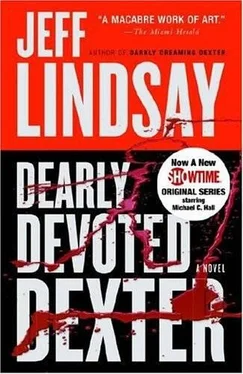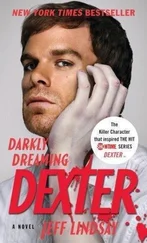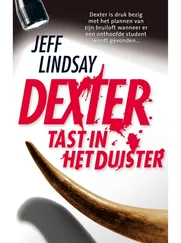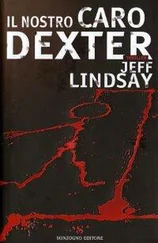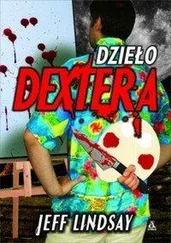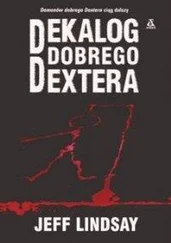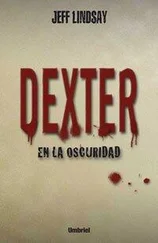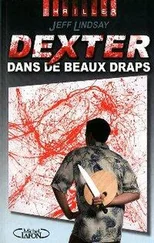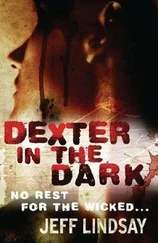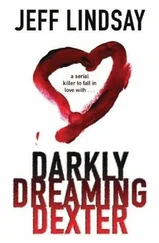“No,” she said to him. “I don’t want another fucking cup of coffee, and I don’t want a fucking chocolate foo-foo. I want a fucking answer. When are we going to go get this guy?”
He looked at her with mild surprise and even a certain fondness, as though people in his line of work found spoon-throwing women quite useful and charming, but he thought her timing might be slightly off. “Can I finish my dessert first?” he said.
DEBORAH DROVE US SOUTH ON DIXIE HIGHWAY. YES, I did say “us.” To my surprise, I had become a valuable member of the Justice League and was informed that I was being honored with the opportunity to put my irreplaceable self in harm’s way. Although I was far from delighted, one small incident almost made it worthwhile.
As we stood outside the restaurant waiting for the valet to bring Deborah’s car, Chutsky had quietly muttered, “What the fuck…?” and sauntered away down the driveway. I watched him as he walked out to the gate and gestured at a maroon Taurus that had casually parked there beside a palm tree. Debs glared at me as if it was all my fault, and we both watched Chutsky wave at the driver’s window, which rolled down to reveal, of course, the ever-watchful Sergeant Doakes. Chutsky leaned on the gate and said something to Doakes, who glanced up the drive to me, shook his head, and then rolled up the window and drove away.
Chutsky didn’t say anything when he rejoined us. But he did look at me a little differently before he climbed into the front seat of the car.
It was a twenty-minute drive south to where Quail Roost Drive runs east and west and crosses Dixie Highway, right beside a mall. Just two blocks in, a series of side streets leads into a quiet, working-class neighborhood made up of small, mostly neat houses, usually with two cars in the short driveway and several bicycles scattered across the lawn.
One of these streets bent to the left and led to a cul-de-sac, and it was here, at the end of the street, that we found the house, a pale yellow stucco dwelling with an overgrown yard. There was a battered gray van in the driveway with dark red lettering that said HERMANOS CRUZ LIMPIADORES-Cruz Brothers Cleaners.
Debs drove around the cul-de-sac and up the street about half a block to a house with half a dozen cars parked out front and on the lawn, and loud rap music coming from inside. Debs turned our car around to face our target and parked under a tree. “What do you think?” she said.
Chutsky just shrugged. “Uh-huh. Could be,” he said. “Let’s watch a while.” And that was the entire extent of our sparkling conversation for a good half hour. Hardly enough to keep the mind alive, and I found myself mentally drifting off to the small shelf in my apartment, where a little rosewood box holds a number of glass slides, the kind you place under a microscope. Each slide contained a single drop of blood-very well-dried blood, of course. I wouldn’t have the nasty stuff in my home otherwise. Forty tiny windows into my shadow other self. One drop from each of my small adventures. There had been First Nurse, so long ago, who had killed her patients by careful overdose, under the guise of easing pain. And the very next slot in the box, the high-school shop teacher who strangled nurses. Wonderful contrast, and I do love irony.
So many memories, and as I stroked each one it made me even more eager to make a new one, number forty-one, even though number forty, MacGregor, was hardly dry. But because it was connected to my next project, and therefore felt incomplete, I was anxious to get on with it. As soon as I could be sure about Reiker and then find some way-
I sat up. Perhaps the rich dessert had clogged my cranial arteries, but I had temporarily forgotten Deborah’s bribe. “Deborah?” I said.
She glanced back at me, with a small frown of concentration on her face. “What.”
“Here we are,” I said.
“No shit.”
“None whatsoever. A complete lack of shit, in fact-and all thanks to my mighty mental labors. Wasn’t there some mention of a few things you were going to tell me?”
She glanced at Chutsky. He was staring straight ahead, still wearing the sunglasses, which did not blink. “Yeah, all right,” she said. “In the army Doakes was in Special Forces.”
“I know that. It’s in his personnel file.”
“What you don’t know, buddy,” said Kyle without moving, “is that there’s a dark side to Special Forces. Doakes was with them.” A very tiny smile creased his face for just a second, so small and sudden I might have imagined it. “Once you go over to the dark side, it’s forever. You can’t go back.”
I watched Chutsky sit completely motionless for a moment longer and then I looked at Debs. She shrugged. “Doakes was a shooter,” she said. “The army let the guys in El Salvador borrow him, and he killed people for them.”
“Have gun will travel,” Chutsky said.
“That explains his personality,” I said, thinking it also explained a great deal more, like the echo I heard coming from his direction when my Dark Passenger called out.
“You have to understand how it was,” Chutsky said. It was a little eerie to hear his voice coming from a completely unmoving and unemotional face, as if the voice was really coming from a tape recorder somebody had put in his body. “We believed we were saving the world. Giving up our lives and any hope for something normal and decent, for the cause. Turns out we were just selling our souls. Me, Doakes…”
“And Dr. Danco,” I said.
“And Dr. Danco.” Chutsky sighed and finally moved, turning his head briefly to Deborah, then looking forward again. He shook his head, and the movement seemed so large and theatrical after his stillness that I felt like applauding. “Dr. Danco started out as an idealist, just like the rest of us. He found out in med school there was something missing inside him and he could do things to people and not feel any empathy at all. Nothing at all. It’s a lot rarer than you think.”
“Oh, I’m sure it is,” I said, and Debs glared at me.
“Danco loved his country,” Chutsky went on. “So he switched to the dark side, too. On purpose, to use this talent. And in El Salvador it… blossomed. He would take somebody that we brought him and just-” He paused and took a breath, blew it out slowly. “Shit. You saw what he does.”
“Very original,” I said. “Creative.”
Chutsky gave a small snort of laughter that had no humor in it. “Creative. Yeah. You could say that.” Chutsky swung his head slowly left, right, left. “I said it didn’t bother him to do that stuff-in El Salvador he got to like it. He’d sit in on the interrogation and ask personal questions. Then when he started to- He’d call the person by name, like he was a dentist or something, and say, ‘Let’s try number five,’ or number seven, whatever. Like there were all these different patterns.”
“What kind of patterns?” I asked. It seemed like a perfectly natural question, showing polite interest and keeping the conversation moving. But Chutsky swiveled around in his seat and looked at me as if I was something that might require a whole bottle of floor cleaner.
“This is funny to you,” he said.
“Not yet,” I said.
He stared at me for what seemed like an awfully long time; then he just shook his head and faced front again. “I don’t know what kind of pattern, buddy. Never asked. Sorry. Probably something to do with what he cut off first. Just something to keep himself amused. And he’d talk to them, call them by name, show them what he was doing.” Chutsky shuddered. “Somehow that made it worse. You should have seen what it did to the other side.”
“How about what it did to you?” Deborah demanded.
Читать дальше
